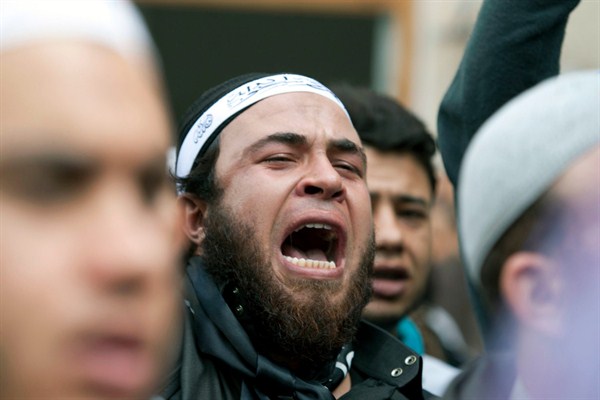Adherents of Salafism, the literalist, Saudi-inspired current of Islamism, are growing in influence across North Africa. This is especially true for the so-called quietist current, which theoretically eschews overt political activism but is increasingly asserting itself in the political and social spheres. In some states in the Maghreb, authoritarian regimes are partly responsible for the quietist salafists' rise.
BENGHAZI—The young fighters huddled on lawn chairs in the nighttime shadows of the militia camp, smoking and drinking coffee. Around them in a courtyard sat the machinery of war: howitzers, tanks and truck-mounted recoilless rifles. Artillery and rockets boomed in the distance.
It was the late fall of 2015—the height of a fierce, multiyear battle for this troubled eastern Libyan city. The fighting was often described in the media as pitting Islamists against “secularists.” The men at the camp were lumped together with the so-called secularists, led by a former Libyan army general named Khalifa Hiftar.

